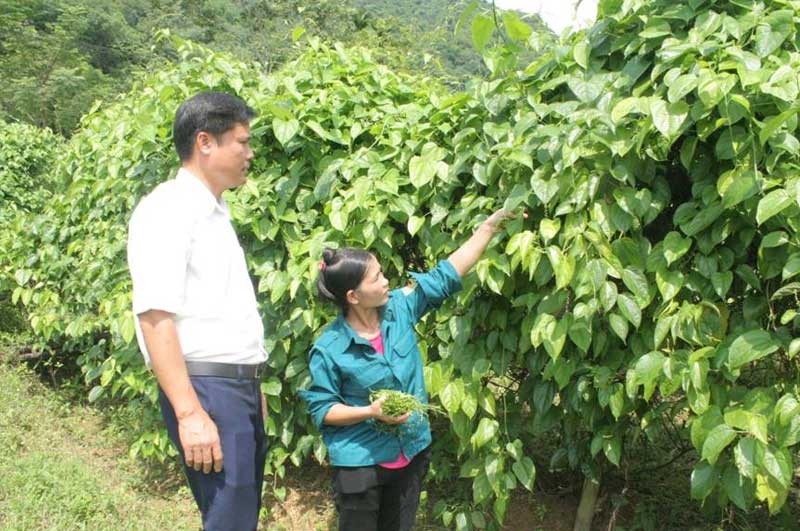



Ms. Ha Thi Hanh, the Head of Khang Hamlet,
Dich Giao commune (Tan Lac) is introducing to the leaders of Dich Giao commune
on Sachi planting model.
As she researched, she found that this model
can be deployed appropriately in the hamlet. However, it is not easy to develop
models in the hamlet. Due to the failure of the previous models, and once
participating in the Sachi plantation model, the Company only provides
technical support, the local people have to invest all the seed, capital,
scaffolds, manning, and fertilizer. Each plant only has the price of 25,000
VND, but the materials for building scaffolds on the pilot area must be
invested up to a hundred million VND.
In order to mobilize farmers to participate
in the model, Ms. Hanh showed her prestige to ensure them "not to worry
about the product output" as the key thing to encourage the households to
participate. Ms. Hand pioneered to plant on 1,000 m2 of her family land. In the
whole hamlet, there are 14 families participating in the pilot of planting Sachi
plants on an area of 1.2 hectares. The model began deployment in April, 2017.
During the implementation, Ms. Hanh felt wondered as "sitting on the
fire". With the persistence of Ms. Hanh, the harvesting day has come. Inca
Vietnam joint Stock Company appointed its staff directly to the place to buy
products for Sachi growers. After the initial accounting, there were 0,1 – 0,13
tons of fruit harvested on an average area of 1,000 m2. Each hectare yielded
more than 1 ton of fruit because there were no machine separators in the
hamlet. Each hectare brought the income of over 120 million VND.
According to Ms. Hanh, through piloting,
Sachi trees fit the soil of the hamlet. It is not difficult to grow Sachi
plants, just taking good care of the trees for many fruits and good green
leaves. Sachi plant is considered as a multi-purpose plant. All the parts of
this plant, from seed, branch and leaf, can be used for processing food,
cosmetics and pharmaceuticals. Currently, the Sachi plants of the hamlet has
been collected and purchased twice by the company. The statistics of the
participating households show that planting Sachi trees brings the income 2-3
times higher than growing maize. Through the practical effect from the pilot
model, many households in the hamlet registered to participate. This year, the
District Board of Agriculture and Rural Development has supported seeds,
fertilizer and materials to expand 2 hectares of Sachi trees in the hamlet.